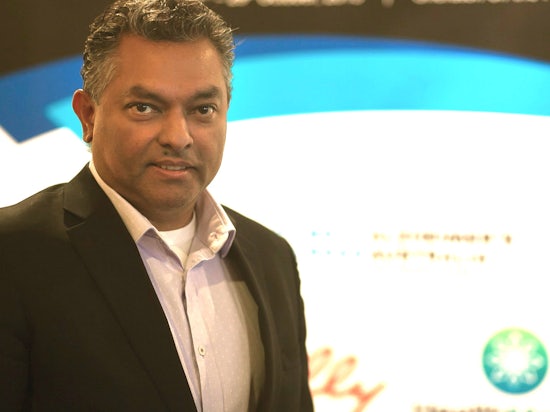Insight into the health and ageing industry conference with Health Metrics
SPONSORED STORY – With recent expansion into the United Kingdom and growing market domination in Australia and New Zealand, Health Metrics’ eCase software has hit fever pitch.

Health Metrics CEO Steven Strange (Source: Health Metrics)
We recently spoke to Health Metrics Chief Executive Officer (CEO) Steven Strange about the brands latest extension into the industry conference arena.
Find out what he had to say:
Q: Why has Health Metrics launched a health and ageing industry conference, in what appears to be such a busy ‘conference market?’
A: Industry conferences provide important content, but they continue to miss the mark in regards to technology. There seems to be an ongoing trend to isolate ‘technology’ as a topic; whereas future and technology are intertwined. In addition, there is an ongoing disconnect between technologies highlighted by current media and conferences, and technologies which are truly valuable and applicable.
As a leader in our field, Health Metrics is simply opening up our conference to the broader industry, providing access to the topics that we see are important. (In previous years the conference was for clients of Health Metrics only).
Q: What inspired you to undertake this? What was/is your vision?
A: Health Metrics has experienced rapid growth over the past four years, with expansion into New Zealand and the United Kingdom.
During our journey, we’ve discovered just how far ahead Australia is in terms of our basic standards of aged care, and also, the technological solutions we offer. We don’t see this proficiency reflected in our media or conferences.
Our company’s annual conference brings together senior leaders in the health and aged care sector. Our clients have extensive expertise in all facets of aged care and as such, we want to provide a broader platform (at our cost), to share ideas and thought leadership.
Q: What makes this conference different from others? Peak bodies etc. What gaps did you identify in the market?
A: Technology cannot stand alone. The way it’s intrinsic to our day-to-day lives is how it is in all industries, not just aged care. We constantly see technology being singled out as a separate topic conference or issue. That’s not the ‘now’, let alone ‘the future’. We decided to bridge the gap with our own conference.
Q: How has the conference been received by your clients and partners?
A: Very positively – the speaker line-up is a big draw card. There are those who are surprised about it – as they’re not used to a software provider in the conference space, but we’re used to surprising people. It’s a natural brand extension for Health Metrics. Our eCase software is live and in real-time, it’s also agile and innovative. It’s strongly based on the latest industry trends – we feel our people and the industry at large need to be too.
Q: How did you select the speakers? The conference is about ‘technology’ but the speakers, ie. Todd Sampson and Nicholas Gruen, aren’t tech pioneers?
A: Technology when properly applied is about problem solving. Defining the actual problem and solution is where ‘insight’ is key. That’s where thinkers like Sampson and Gruen come into play. Gruen, for example, has a whole different model of economics based on future demographics; the likes of which has never been seen before. We need to consider new concepts, as we can’t keep doing the same thing, expecting it to work in a rapidly changing world.
Q: How did you select the themes: Thought Leadership, Technology, Diet and Wellbeing, Workforce, Finance, Architecture and Analytics?
A: In our opinion, these are the hot topics of the industry. We need Thought Leadership from outside government to innovate/create and fund solutions. We need Technology for those solutions and to provide ongoing efficiencies. Diet and Wellbeing are of key importance to the consumer, who is central to all that we do. The available Workforce as we know it, is dwindling and will continue to do so.
It’s a very different future we are facing and we, as an industry, need to start understanding what it will look like, and how to adequately plan for it. The conference will discuss these issues as well as new concepts around ‘interconnectedness’.
Q: Who would benefit the most from attending the conference and why?
A: We’ve designed this conference to have broad appeal – those who work in Residential Aged Care, Retirement Living, Home Care or Disability Care would benefit from this event. We will have the latest in thought leadership from the industry, as well as practical workshops for professional development.
Q: Do you plan to make this an annual event?
A: Yes! We aim to make it a feature on the industry calendar.










